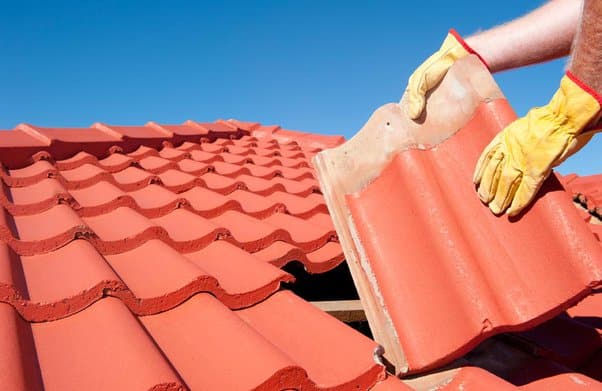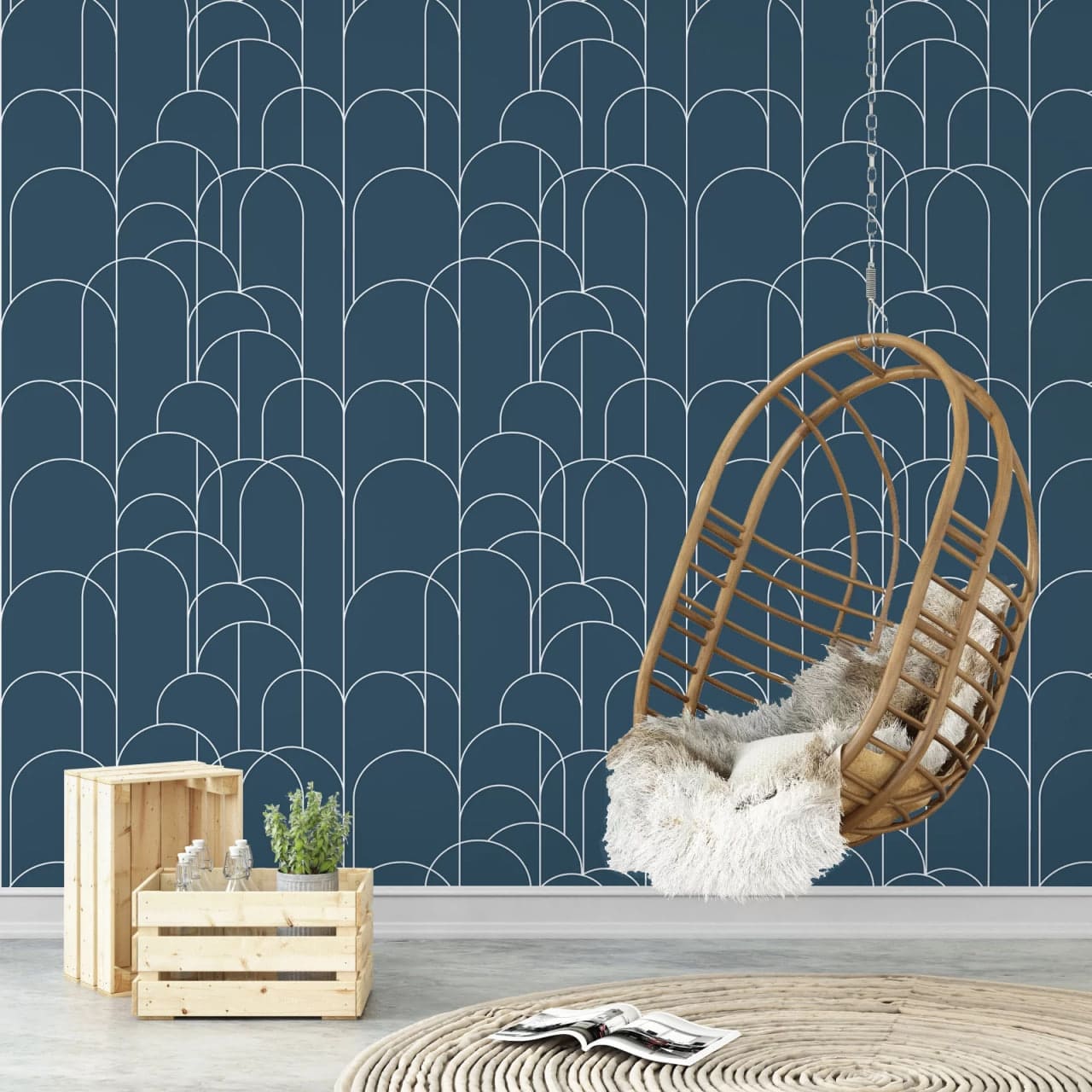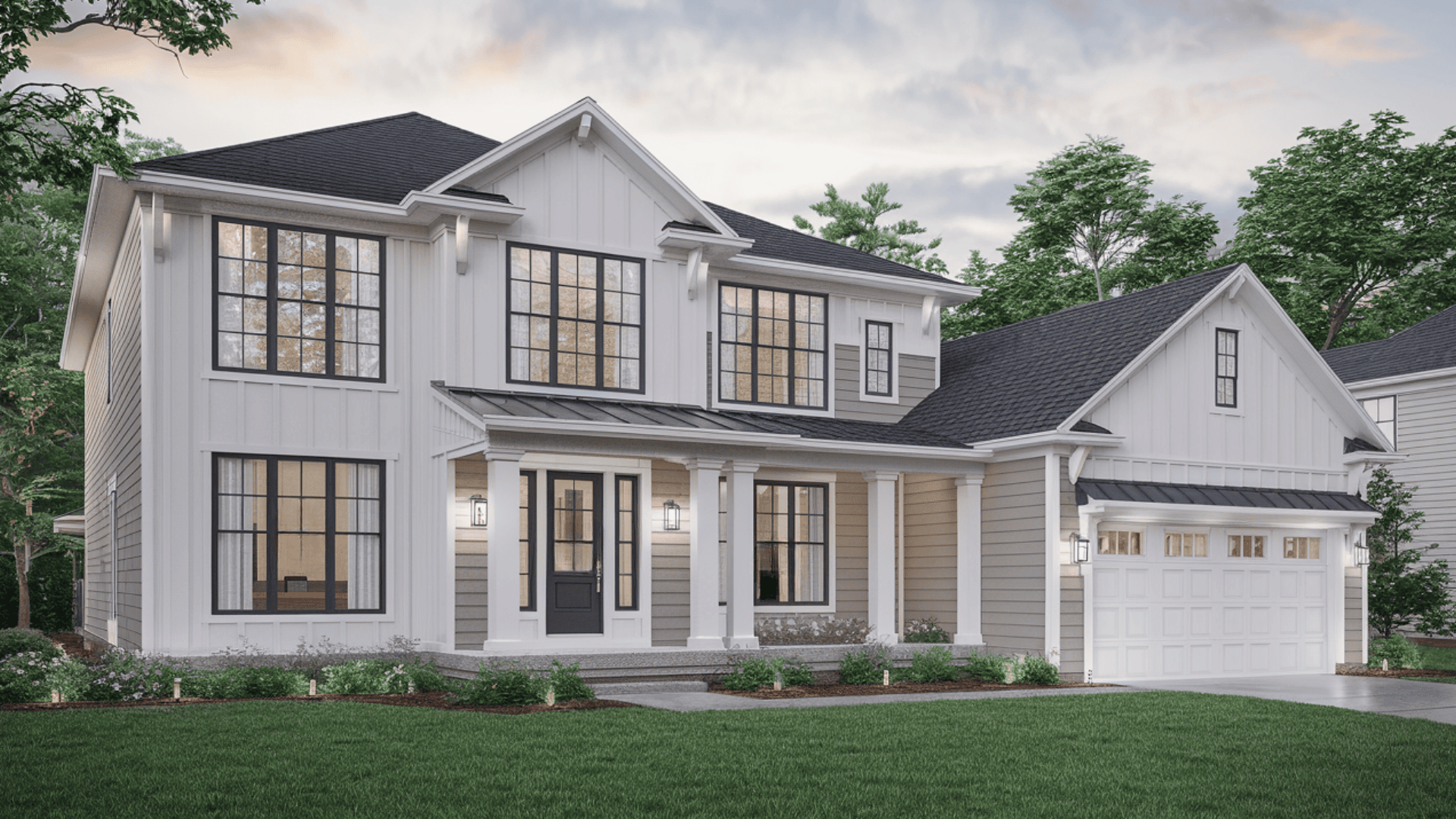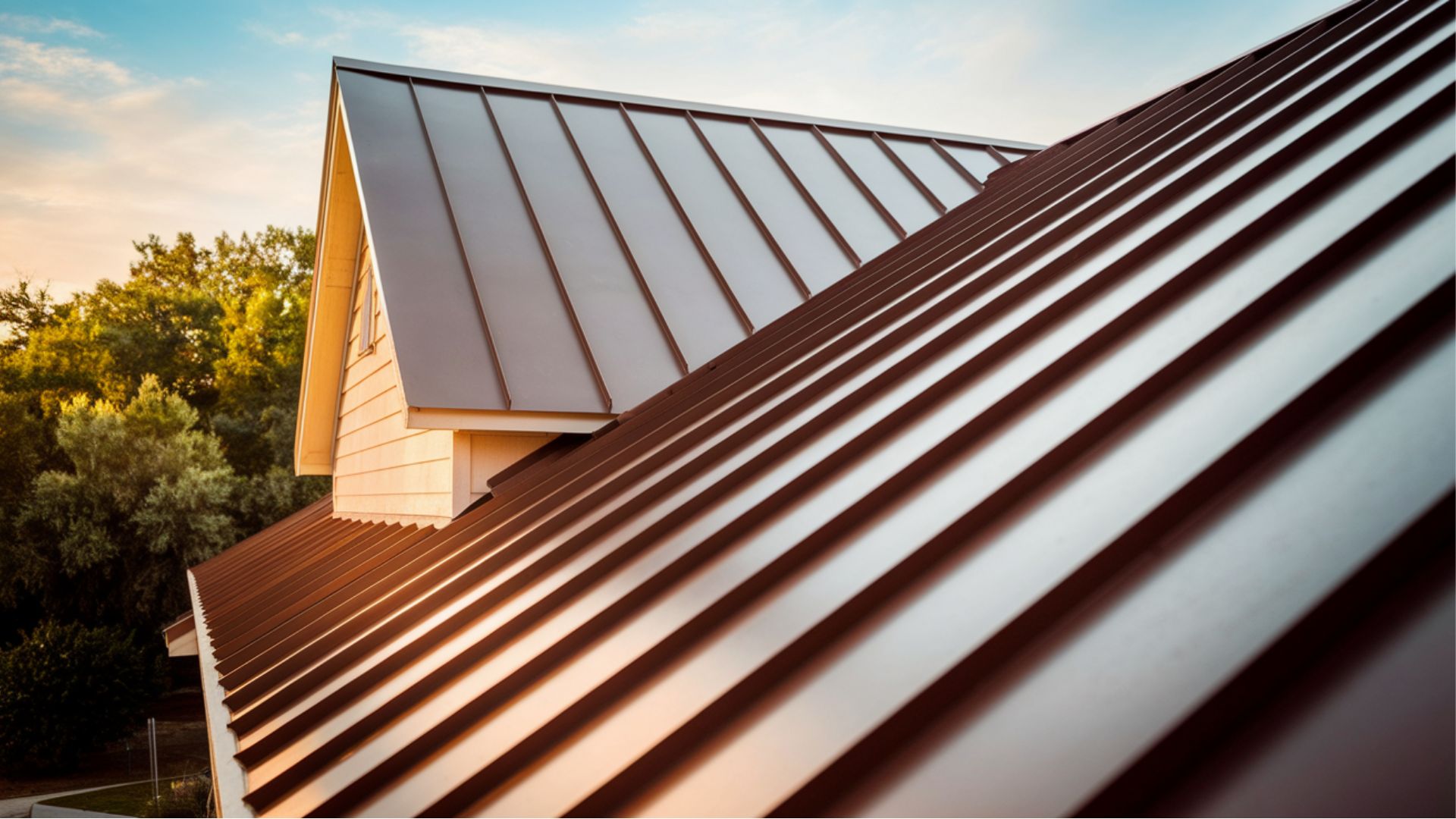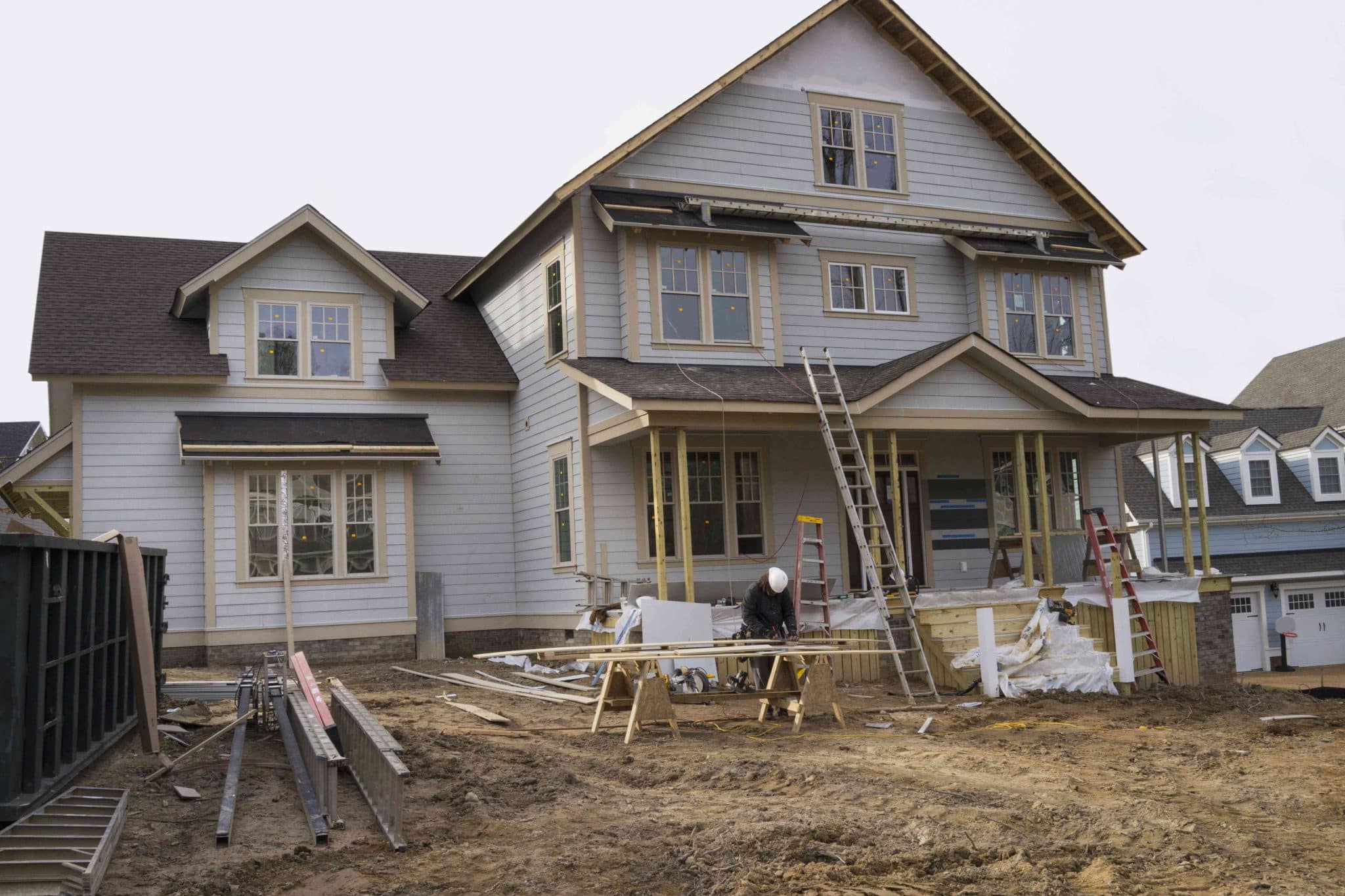Flat Roof Materials That Laugh in the Face of Bad Weather
Flat roofs have a reputation for being the underdogs of the roofing world, often seen as the quirky cousin in the family of pitched roofs. But when it comes to facing down the elements with a grin, the right flat roof materials can turn the tide. From torrential downpours to relentless UV rays, these materials stand firm and unyielding, proving that flat roofs are not to be underestimated.
Flat roof materials have evolved into powerhouses of durability and resilience, shrugging off bad weather like it’s just another day. Whether you’re dealing with sweltering summers or icy winters, the right choice of materials ensures your roof remains a steadfast protector of your home.
And here’s the kicker: commercial roofing contractors have long known the secrets of these weather-defying wonders, applying their expertise to keep commercial buildings snug and dry through the worst conditions.
Now, we’re about to pull back the curtain on these unsung heroes of the roofing world. You’ll find out why EPDM, TPO, PVC, modified bitumen, and built-up roofing are your best friends when the forecast looks grim. Each of these materials has its own superpower, ready to combat whatever nature throws its way.
EPDM – The Rubber Roof That Bounces Back
Durability and Longevity
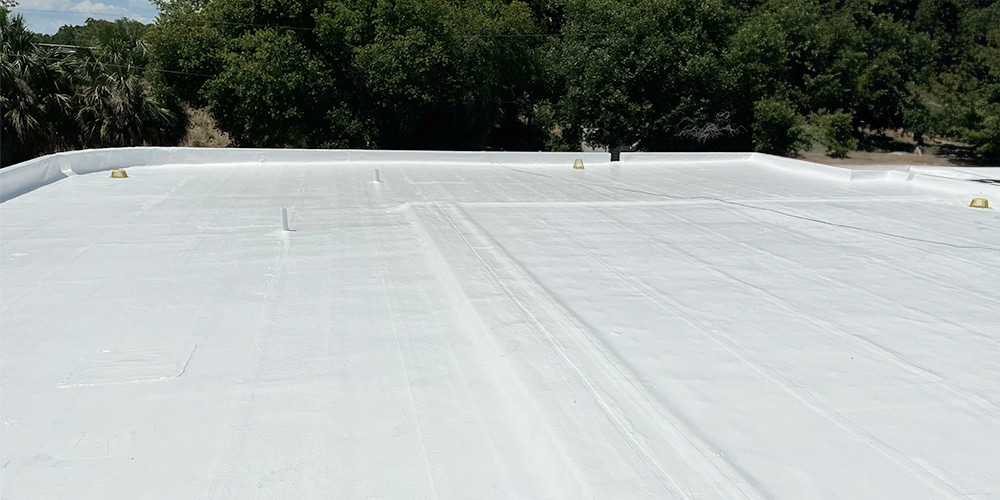
It’s like the marathon runner of roofing materials for flat roofs, going the distance without breaking a sweat. EPDM’s durability comes from its robust chemical structure, which stands up to wear and tear year after year. You won’t have to worry about it cracking or shrinking over time, so your flat roof will stay strong and reliable for decades.
Weather Resistance
When it comes to battling the elements, EPDM is the heavyweight champion. This material laughs in the face of UV rays, ozone, and extreme temperatures.
Whether it’s scorching heat or bitter cold, EPDM retains its flexibility and strength. Unlike other materials that might get brittle in the winter or soften in the summer, EPDM stays consistent.
Its resistance to weather extremes means fewer headaches for you and more peace of mind knowing your roof can handle whatever Mother Nature throws at it. So, when you’re considering roofing materials for flat roofs, EPDM should be high on your list for its weather-defying capabilities.
Maintenance and Repair
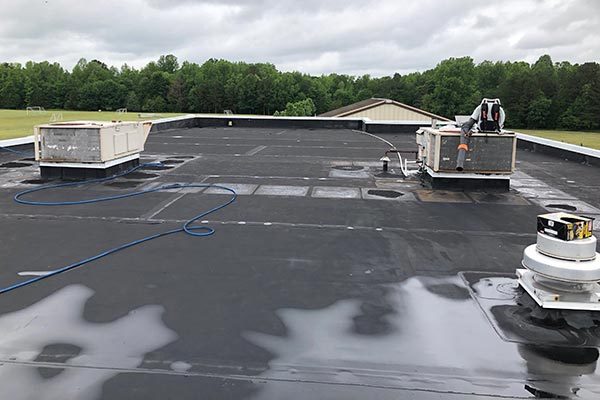
Should a repair be necessary, it’s usually a straightforward process that doesn’t require a complete overhaul. You can patch up small areas without having to replace the whole roof, which saves you time and money in the long run. Plus, the installation process is relatively simple, making it a favorite among commercial roofing contractors who appreciate its hassle-free application.
TPO
TPO (Thermoplastic Olefin) is like the superhero of flat roof material types, ready to tackle weather challenges head-on. You might be thinking, “What makes TPO so special?” Let’s break it down.
Energy Efficiency
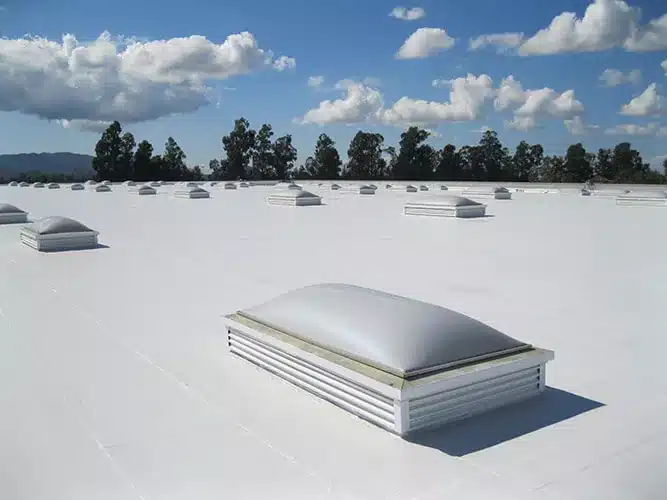 TPO isn’t just any ordinary material; it’s your roof’s best friend when it comes to energy savings. By reflecting sunlight, TPO significantly reduces heat buildup inside your home. This means you won’t have to crank up the AC as much during those scorching summer months, leading to lower energy bills. Your home stays cooler, and your wallet stays happier.
TPO isn’t just any ordinary material; it’s your roof’s best friend when it comes to energy savings. By reflecting sunlight, TPO significantly reduces heat buildup inside your home. This means you won’t have to crank up the AC as much during those scorching summer months, leading to lower energy bills. Your home stays cooler, and your wallet stays happier.
Seam Strength
One of the standout features of TPO is its heat-welded seams. These seams provide superior strength, making your roof more resistant to leaks and water damage. While other materials might struggle to keep water out, TPO stands firm. This durability is especially important in areas prone to heavy rain or snow, where the last thing you need is a leaky roof.
Flexibility
TPO remains flexible across a wide range of temperatures, making it less prone to cracking in cold weather. This flexibility ensures that your roof can adapt to temperature fluctuations without compromising its integrity. Unlike some materials that become brittle in the cold, TPO maintains its resilience, giving you peace of mind through all seasons.
Commercial roofing contractors often recommend TPO for both residential and commercial properties due to its robust performance. It’s a go-to choice that combines efficiency, durability, and flexibility, making it a top contender among flat roof material types.
PVC
When it comes to flat roofing materials, PVC (Polyvinyl Chloride) is a standout performer. It’s the superhero of types of roofing materials for flat roofs, combining longevity, chemical resistance, and fire safety in one impressive package.
Longevity
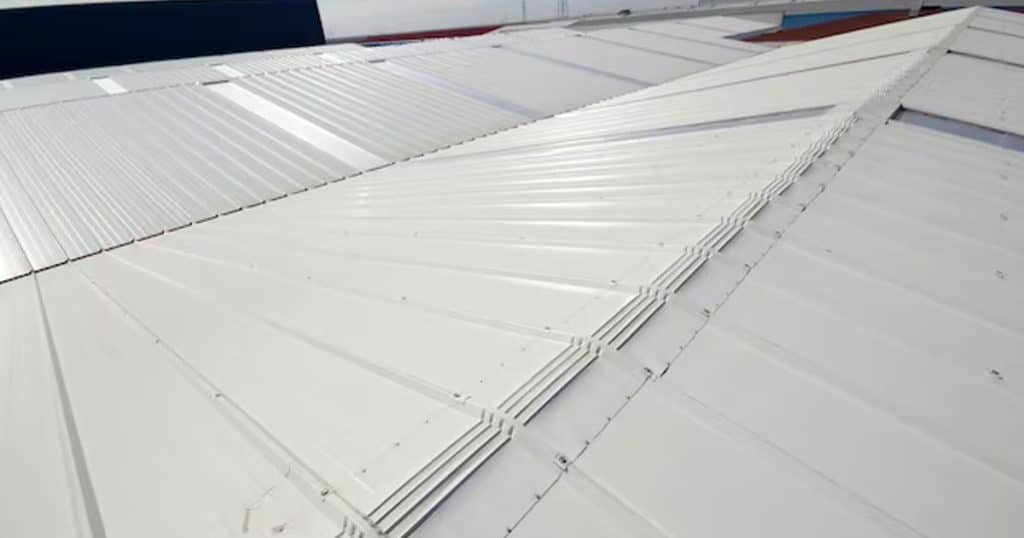
Unlike other materials that might crack or deteriorate over time, PVC stands firm. Its resistance to environmental stressors, such as extreme weather and UV radiation, keeps it in top shape. So, you can sit back and let your roof handle whatever Mother Nature throws its way.
Chemical Resistance
PVC’s resistance to chemicals is another reason why it’s a top choice, especially for commercial properties. Whether your roof needs to fend off grease, pollutants, or other industrial chemicals, PVC doesn’t flinch.
This makes it an ideal material for buildings located in urban or industrial areas where air quality might be less than pristine. Your PVC roof will maintain its integrity and performance, no matter the chemical cocktail it faces.
Fire Resistance
Safety first! PVC is inherently fire-resistant, which means it adds an extra layer of protection to your property. This is not just a minor benefit; it’s a game-changer. In the unfortunate event of a fire, a PVC roof can help slow down the spread, giving you valuable time to respond. It’s like having a built-in defense system that’s always on guard.
Modified Bitumen
Strength and Flexibility
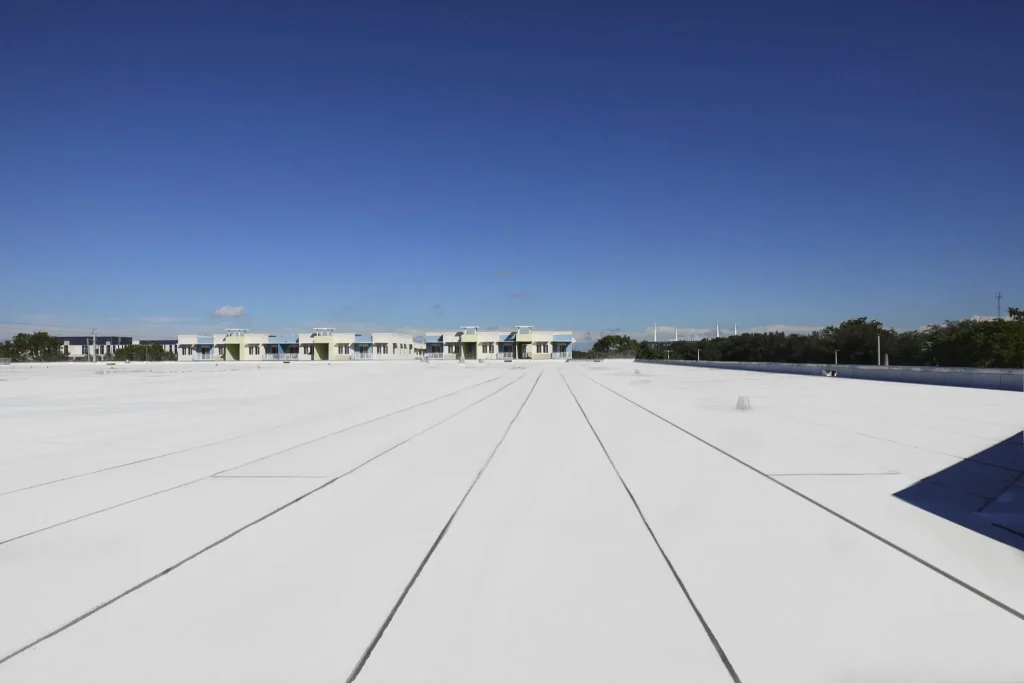 When it comes to durability, modified bitumen is the flat roof superhero you didn’t know you needed. Combining the robust strength of asphalt with the flexibility of polymers, this roof material for flat roofs stands tall against the elements. The magic lies in its unique composition.
When it comes to durability, modified bitumen is the flat roof superhero you didn’t know you needed. Combining the robust strength of asphalt with the flexibility of polymers, this roof material for flat roofs stands tall against the elements. The magic lies in its unique composition.
Asphalt provides a sturdy base, while the added polymers enhance elasticity. This combination means your roof can handle expansion and contraction due to temperature changes without cracking or splitting. Essentially, modified bitumen brings the best of both worlds: the toughness of asphalt and the adaptability of polymers.
Layered Protection
What sets modified bitumen apart as one of the best materials for flat roofs is its multi-layered approach. Think of it as armor for your roof. Multiple layers of bitumen and reinforcing fabrics create a thick, durable shield against the weather.
These layers work together to provide superior waterproofing, which is crucial for flat roofs that need to manage water more effectively than sloped roofs. Each layer adds another level of protection, ensuring that your roof can withstand heavy rains, snow, and even hail without flinching.
Temperature Tolerance
One of the standout features of modified bitumen is its impressive performance across a wide range of temperatures. Whether you’re dealing with the scorching heat of summer or the bitter cold of winter, this material doesn’t back down.
It remains flexible in low temperatures, reducing the risk of cracks, and maintains its integrity in high temperatures, preventing softening or melting. This makes it an excellent choice for homes in areas with extreme seasonal variations, ensuring your roof stays intact and effective year-round.
Why Choose Modified Bitumen?
Choosing modified bitumen as your roof material for flat roofs is a decision rooted in practicality and long-term benefits.
You’re not just opting for a roof that looks good; you’re investing in one that performs exceptionally well under pressure. Its strength and flexibility mean fewer repairs and a longer lifespan, saving you money and headaches in the long run.
The layered protection guarantees superior resistance to leaks and weather damage, providing peace of mind during the harshest of storms. And with its excellent temperature tolerance, you can be confident that your roof will stay in top condition, no matter the weather outside.

